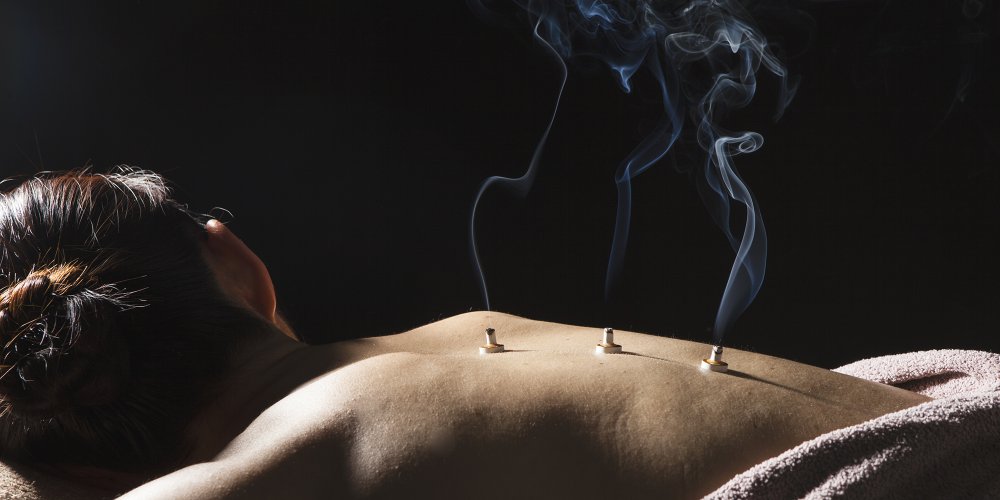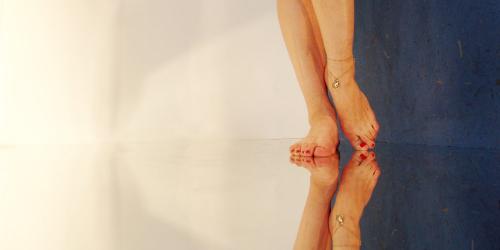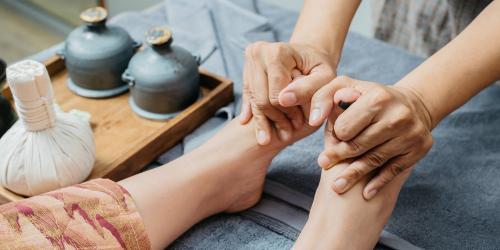Headache, backache, fatigue, stress, insomnia. How to stop the small evils of the daily to hold until the holidays? The Tui Na can be the solution to rebalance your energies. As if you had pressed the reset button on your body.
One of the five branches of Traditional Chinese Medicine
The origins of this therapeutic practice, then called Anmo, date back to the Zhou Dynasty (1060 BC). The term Tui (meaning to push) Na (grasping) appeared much later in the Ming Dynasty (1368-1644) in a pediatric work. We have even found inscriptions on turtle shells revealing its use to treat children and digestive disorders of adults.
Forbidden from 1911 to 1949 during the communist revolution, Tui Na was rehabilitated in 1950 with the advent of the People's Republic of China through a training program.
It belongs to one of the five branches of TCM (Traditional Chinese Medicine), which includes acupuncture, Chinese dietetics, Chinese pharmacopoeia and energy exercises (qi gong and tai chi).
A very personalized care
Designed to harmonize the IQ (vital energy) that flows through the meridians, the Tui Na is based on specific manipulations that require a good knowledge of the anatomy .
"In my three Parisian salons, I passed on to my masseuses, graduates of the Shanghai school, the know-how developed in my family for three generations," says Lanqi (whose first name means Snow Flower in Mongolian). She continues: "Before the session, besides the usual questionnaire, I add listening to the sound of the voice, the examination of the tongue and the palpation of the pulse. Essential tools to understand the origin of the imbalance and offer a tailor-made care adapted to the areas to be treated, the age and the constitution of the person. "
Balancing yin and yang
The practitioner begins with the back and the neck to identify the tensions , then unties the knots with a deep massage.
Depending on your deficiencies, she goes on with a wide range of movements: rubbing, kneading, pinching, rubbing, stretching, tapping. It follows the path of the meridians, stops on the reflex zones and ends with the ends of the toes.
"These maneuvers can be light or fast, slow or fast to circulate the blood and fluids, regulate the functions of the organs, lubricate the joints and promote total relaxation . The goal is to soothe body and mind ailments in the feng-shui tradition that seeks to rebalance yin and yang, "says Lanqi.
Gua Sha and Moxa, variants with accessories
"We also offer two variants, the Gua Sha and the Moxa, which can start with a Tui Na massage to feel and work on sensitive areas, continues Lanqi. The protocol of Gua Sha (which means scratching the fever) is to quickly scrape the surface of the oiled skin with a small spatula horn cow rounded edges. It comes and goes painless, which is flush with the skin to remove toxins and activate blood circulation and energy, also proves effective in cases of psychological shock. "
Moxa, of Japanese origin, refers to a variety of mugwort. "We use cigar-shaped moxas made from Himalayan plants," says Lanqi. The practitioner approaches burning moxa close to the acupuncture points. By burning slowly, it diffuses a stimulating heat that warms the meridians without burning them. This ritual stimulates the flow, restores the balance between yin and yang and alleviates the feminine problems, particularly the painful rules ".
A revitalizing effect that lasts
After the care that is emptied, it is important to drink well to drain the body and eliminate lactic acid. The following days, we feel a stimulating effect that will continue, especially since Lanqi advocates principles of Chinese dietetics and infusions of medicinal plants.
The Tui Na is for those who are prone to bad postures in front of the computer, to the recurring pains and the sportsmen who solicit much their body. It is strongly discouraged for pregnant women, diabetics, in case of cardiac troubles, wounds, bruises, acute inflammation.
Learn more:
Lanqi Spa, 48 avenue de Saxe 75007 Paris, tel. 01 44 38 72 05/91 rue de Javel 75015 Paris, tel. 01 45 79 63 67/18 rue de Beffroy, 92200 Neuilly, tel. 01 47 38 10 69. / lanqi-spa.com
- Massage Tui Na 1h 60 €, 1h30 90 €. Package 6 sessions of 1h: 348 €
- Massage Tui Na Moxa or Tui Na Gua Sha: 1h 60 €
- Moxa or Gua Sha alone: 20mn 30 €




